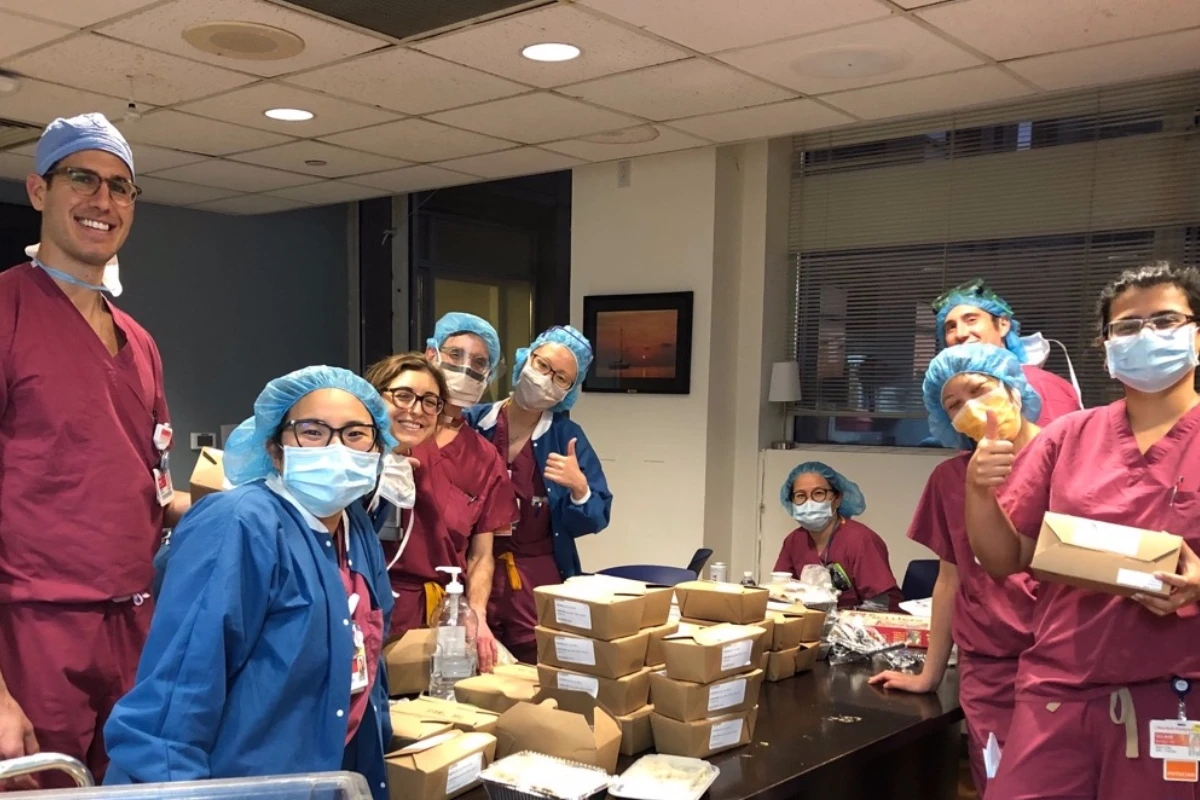There are many women in Texas who are looking to stand on their own two feet to support themselves or their families. The healthcare industry is a great field to break into right now, and it’s not going anywhere anytime soon. If you’re in your 20’s or 30’s, this is one of the best industries in which you can start a long-term career.
Read on to find out more about what makes medical secretaries different, what their job entails, and how to start your journey to a new career.
What do medical secretaries do?
The big difference between secretaries that work in healthcare and those who don’t is the specific knowledge you need for the job. For medical secretaries, these include an understanding of medical terminology, insurance billing and coding, electronic records, and medical transcription.
Medical secretaries perform front-office clerical duties in a wider variety of settings, including hospitals and other large healthcare organizations, and tend to spend less time on the front desk answering phones.
In some environments, you may be required to enter data and type handwritten and recorded notes for medical charts and reports. An understanding of medical billing and coding is also essential, as you may have to communicate with insurance companies and ensure the accuracy of medical records. To be a medical secretary you need to be able to handle multiple tasks and remain calm under pressure. Attention to detail and quality customer service are crucial as is the ability to maintain the confidentiality of personal patient information.
Medical receptionists mainly work in physicians’ offices and other healthcare practices where they are required to provide front-of-house services such as greeting patients, answering telephones, scheduling appointments, and organizing, compiling and recording patient information. While medical secretaries and medical receptionists perform similar duties, in an upcoming blog post, we will discuss the differences between the two and those who work in a general office environment.
What skills will I need to begin my career as a medical secretary?
If you want to work in healthcare administration, then you have to have a variety of industry-specific skills. While most medical secretaries do not have a college degree, a majority of employers require their staff to have formal training in medical terminology, basic anatomy, and physiology. While not necessary for all positions, on-the-job experience is also highly sought after.
When surveyed, medical receptionists indicate that they were required to have a wide-ranging skillset. An understanding of medical terminology, electronic health records, and insurance was associated with above-average wages. This makes training previous to being hired on to a position highly valuable and worth your time.
When choosing a school to prepare you for a medical secretary position, you need to ensure they offer a solid foundation for your healthcare administration career. CCI Training’s allied healthcare career training provides you with an understanding of:
- Computer Fundamentals
- Anatomy & Physiology
- Medical Terminology
- Medical Coding
- Electronic Medical Records
- Medical Law, Ethics & Professionalism
- HIPAA Privacy
- CPR
- Insurance Billing & Reimbursement
Qualifications are always highly sought after by employers, so training that prepares you for certification exams will give you the edge against other, less qualified, applicants. For example, a Medical Billing and Coding Specialist Program provides training to prepare you for three National Healthcareer Association certifications:
- Certified Medical Administrative Assistant (CMAA)
- Certified Billing & Coding Specialist (CBCS)
- Certified Electronic Health Records Specialist (CEHRS)
To show a potential employer how serious you are about being successful in the position they are hiring for, there is no better way than to go through the certifications that will be most helpful to medical secretaries.
Are there medical secretary jobs available in Texas?
With 82,490 medical Secretaries, Texas has the second-highest level of employment in the U.S. and is home to one in five medical secretaries. Texas also
It also holds the first, second, and seventh position for highest employment in a metropolitan area: Houston, Dallas, and Fort Worth. The Dallas-Plano-Irving, TX Metropolitan Division, has 19,800 medical secretaries representing 8.15 per 1000 jobs. This concentration is even higher in the Fort Worth-Arlington, TX Metropolitan Division, with 8.47 medical secretaries for every 1000 jobs held.
It is a common misconception that to be in the healthcare industry you have to have a college degree. This can seem completely out of reach to many people who are already well into adulthood and have families they must provide for right now, not four years from now. Thankfully, there are many positions, like medical secretaries, that do not require a four-year degree program. At CCI Training Center you can keep the job you hold now to provide for your family while training to become certified to better qualify for medical secretary positions.
This high rate of employment isn’t expected to change anytime soon, with aging populations and ongoing health insurance reforms driving employment opportunities. In the U.S. as a whole, employment is tipped to increase by 21%В with 635,800 medical secretaries expected to be employed by 2024. This increase is even more in Texas, where a 32% increase in employment is projected to create 3,580 new job openings every year and employment of 110,800 people by 2024.
In Texas, there is a tremendous need for healthcare industry professionals who speak Spanish as well as English. Having the ability to communicate with patients in their native language is a sought-after skill in our border state. Patients who don’t speak English well, or not at all, are made much more comfortable when they find there is someone they can communicate well with.
Doctors, healthcare facility managers, and other medical professionals will appreciate the heightened level of care they can provide for their patients without the language barrier. The practice, medical office, or healthcare facility will also appreciate the reputation boost they will get by being able to provide this much needed skill in the state of Texas.
There’s also ample opportunity for career progression, with many medical secretaries going on to specialize in insurance billing and coding, health information, transcription, medical assisting or practice management.
So how can I find medical secretary positions?
When searching online, it pays to try a few different search terms. At the time of this posting, Monster had thousands of medical receptionist and medical secretary positions listed for the DFW area. Glassdoor was advertising 600 medical receptionist positions, while Indeed had 545 jobs available.
Just some of the other job titles you should search for include:
- Medical Office Specialist
- Unit Secretary
- Unit Support Representative
- Admissions Coordinator
- Billing Coordinator
- Health Unit Coordinator
- Medical Office Specialist
- Patient Coordinator
- Physician Office Special
Recommended for you
-
Medical Assistant Program
Take our accelerated Medical Assistant with Clinical Labs program at our Arlington campus and start a new career in as little as 8 months!
Radiology Technician Training
Take our accelerated Radiology Technician Training program at our Arlington campus and start a new career in as little as 8 months!
Medical Billing And Coding Specialist Program
Our 100% online accelerated Medical Billing and Coding Specialist Program makes it possible for you to train for a new career in as little as 25 weeks!
Accredited Pharmacy Technician Training Program
Our 100% online accelerated Pharmacy Technician Training program makes it possible for you to train for a new career in as little as 25 weeks!
Medical Assistant Program
Our 100% online fast track Medical Assistant program makes it possible for you to train for a new career in as little as 6 months!
At CCI Training Center you will find knowledgeable instructors willing to help guide you through the certification process and beyond. They will be able to answer questions about the healthcare industry and what path might be best for you to take.
Many people who are at CCI Training Center are already in the healthcare industry and often the beginning of your healthcare industry network will start here. Knowing someone who already holds a position in the industry can help you a great deal. They may know of somewhere that is hiring, can give you tips on interviewing, or even put in a good word for you at their medical office.
CCI Training Center has flexible class schedules to fit into your busy schedule. There are many schedules only requiring two evenings a week for class and training, allowing you to fit in your training on your off days from your current position, and not requiring much transportation.
It is all too easy to come up with reasons not to get certifications that can lead to a better career for you; CCI Training Center has tried to alleviate all impositions. Our goal is to help people get into a career they have job security, the chance for upward mobility, and a better overall quality of life. You and your family will be exceedingly glad you decided to take the leap into a new career in the healthcare field!
Don’t wait any longer to start on the path to a new career today and find more information on how CCI Training can help you prepare for a career in healthcare administration, fill out the form on this page and we’ll get in touch.
Martin Zandi

Related Articles











CCI Training Center Proudly Completes
41 Years in Career Training Services
















